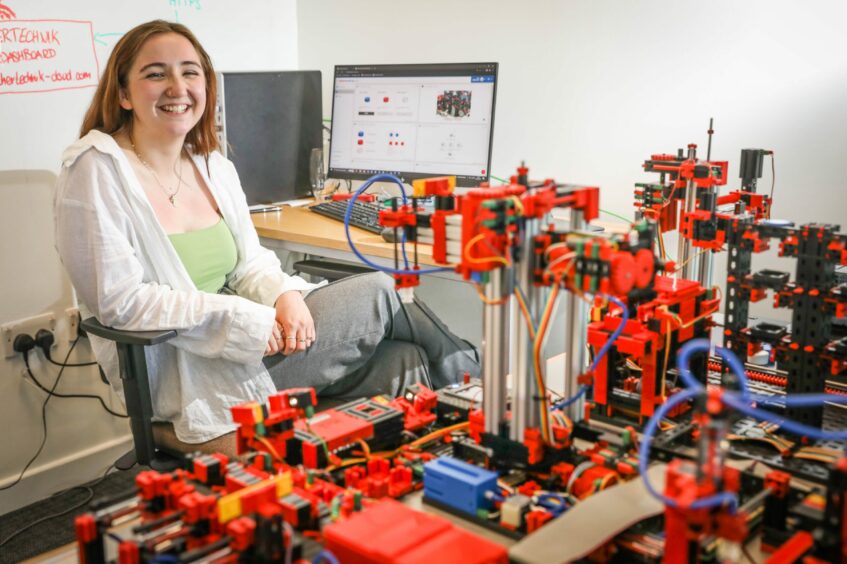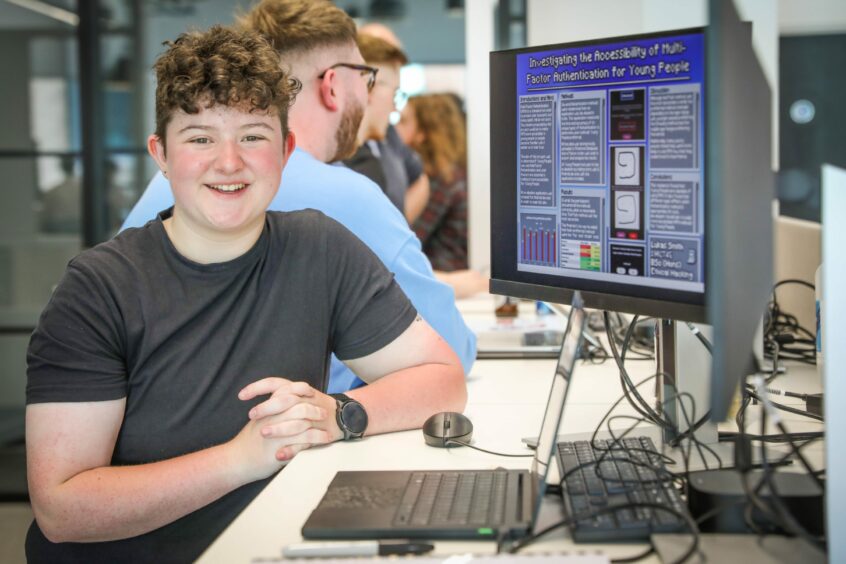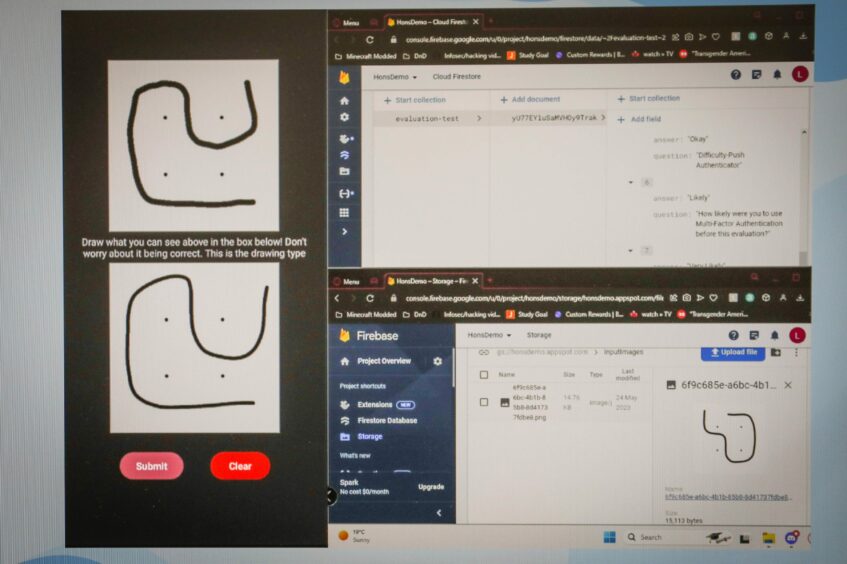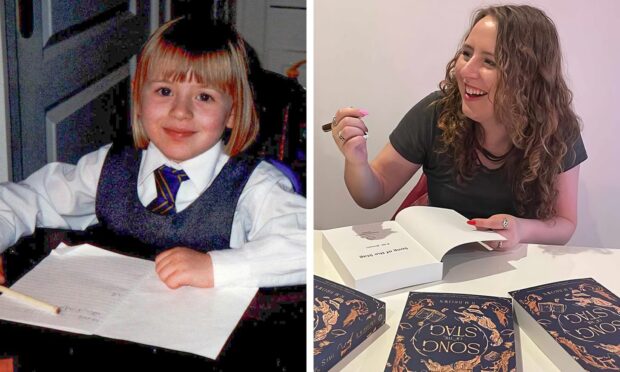Allena Matheson-Dear isn’t how many people would imagine a computer hacker to look.
But the 22-year-old is one of the newest generation of cyber experts trained to spot weakness in IT systems and figure out how they could be attacked.
As a graduate of the world’s first ethical hacking degree course in Dundee, it’s her job to stay one step ahead of cyber criminals and scammers who could bring down vital infrastructure or target vulnerable people.
It was seeing a talking child’s doll hacked during a school roadshow which encouraged her to pursue this career and enroll for Abertay University’s BSc ethical hacking degree course.
She said: “I remember one demo they did was an IOT [internet of things] doll that had a breach.
“It was basically a kids’ toy but you could hack it so you could speak to kids through a doll.”
Watch: Abertay University’s hacked doll
We met Allena and graduating classmates including Lukas Smith as they showcased their work in the university’s Bell Street cyberQuarter.
Allena told us how an inspirational computer teacher at Linlithgow High School introduced her to cyber security as a possible career path, resulting in her attending that roadshow.
Then her older brother went to Abertay University.
Hacking society
She said: “That’s how I found out about the ethical hacking course and I was really interested.
“I also got really involved with the [university’s] hacking society – Abertay’s hacking society is huge and it’s one of the best bits of the course.”
Through a partnership between the university and the Cyber and Fraud Centre Scotland, students were able to learn through real-life scenarios.
So for her dissertation project Allena developed a simulation factory – similar to a huge Lego set – for an engineering firm which was hit by a sophisticated ransomware attack.
Her model factory resembles one of Weir Group‘s facilities and shows where it could be vulnerable to attack.
She explained: “The cyber team there already knew what had happened but they wanted something as a physical demonstration to show internally and also externally to stakeholders to say ‘this is why it’s so important that we do what we do’.”
Having already done an internship there, Allena will join Weir Group’s team in August.
Always changing
It’s the diversity of ethical hacking as a career which appeals to her.
“I love the idea that I could do literally anything,” she said.
“And it’s always changing. Everyday I will read a news article on something new in cyber security.”
Demonstrating that diversity, Lukas showed us his work in developing a multifactor authentication system for children.
MFA is a commonly-used additional security step for logging into devices, such as entering an emailed code after your password.
Knowing how vulnerable they can be to online scams, Lukas, 20, wants to see more children using MFA and designed his app to be more appealing and simplistic.
Rather than inputting text or digits, his app asks users to replicate a simple drawing.
He said: “Lots of kids are using smart phones earlier, making their own accounts, quite often without parental supervision.
“MFA really secures accounts. If your password gets leaked it gives that extra layer of security, so it’s super important.
“I wanted to look at how it could be made more accessible for young people.”
His drawing method was the most popular of several he put to a test group of 10 to 14-year-olds.
Making cyber security fun for kids
He said: “It’s quite fun as well, and with young people you want to to make it something that is fun.”
It was a visit to his Falkirk school, Braes High, by a former ethical hacking student which inspired Lukas to apply for the course.
He said: “It was supercool to see. It wasn’t as well known then as it is now.
“It’s a bit different, and such a practical course.”
Activities of cyber criminals ranging from nation-state actors intent on high-level sabotage to scammers targeting grannies have been investigated by the students, according to cyberQuarter director Lynne Coventry.
Praising the diversity of the graduates’ projects, she said: “You have to be able to think like a hacker, know what a hacker is going to do to defend against a hacker effectively.”
The Cyber and Fraud Centre Scotland, which provides regular intelligence updates on emerging cyber threats to help organisations defend themselves, is a founding partner of the cyberQuarter.
It works with the university to bridge the gap between academia and industry, giving students real-life experience, such as conducting vulnerability scans on businesses’ IT infrastructure.
How do you become an ethical hacker?
Abertay University’s BSc (Hons) ethical hacking course trains students to stop cybercriminals in their tracks.
Topics covered include digital forensics and exploit development.
Employment prospects after graduating are said to be excellent, with a high starting salary.















Conversation